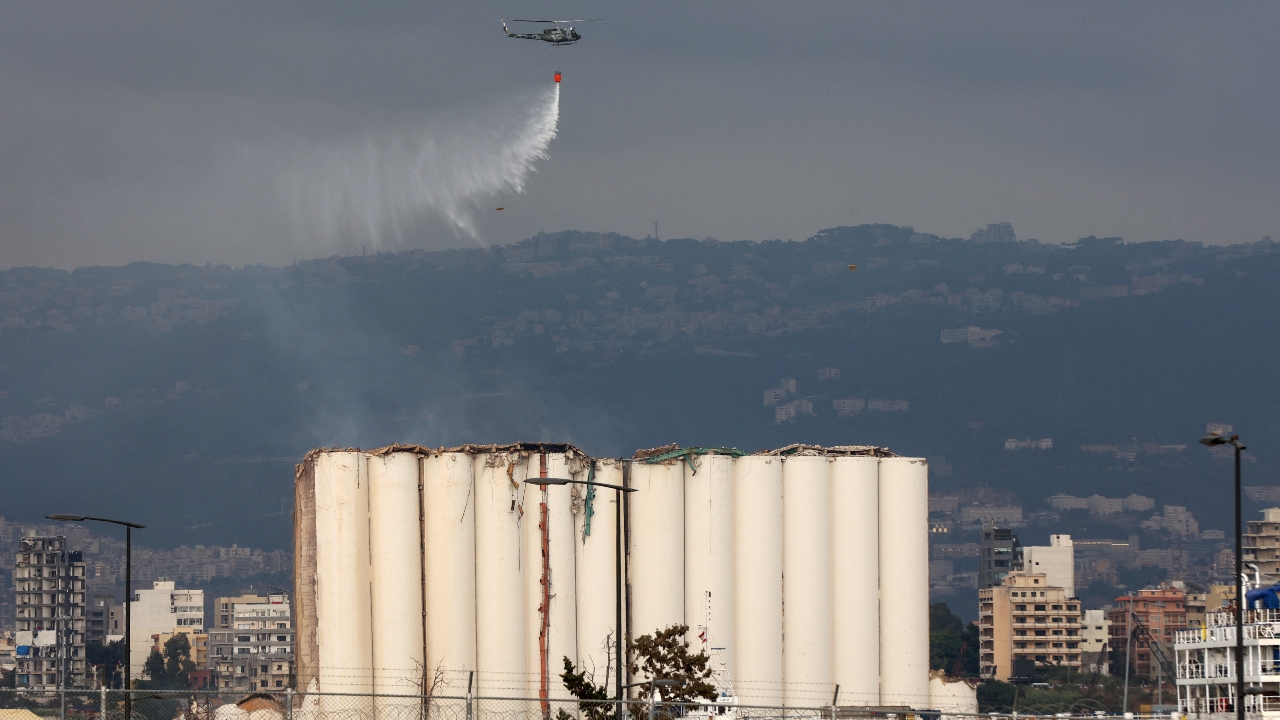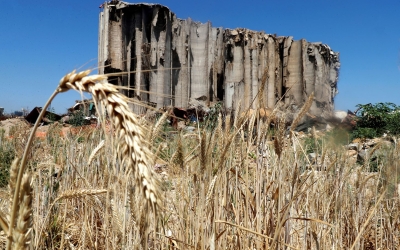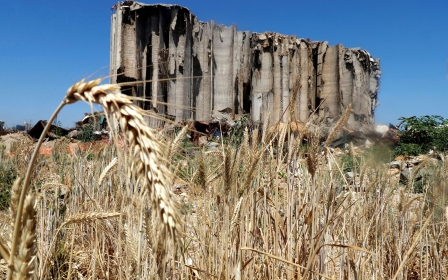Lebanon: Beirut port's blast-damaged grain silos partially collapse ahead of anniversary

Part of the Beirut port grain silos collapsed on Sunday afternoon, sending a large cloud of dust and smoke into the sky, nearly two years after a massive blast killed more than 215 people and severely damaged the port.
A fire has burned at the northern part of the silos for about three weeks, giving off an orange glow visible at night from nearby neighbourhoods, and Lebanese officials warned last week that part of the silos could collapse.
There were no immediate reports of deaths or injuries.
Transport Minister Ali Hamie told Reuters he feared more parts of the silos could collapse imminently.
The collapse comes four days before the second anniversary of the explosion on 4 August 2020.
New MEE newsletter: Jerusalem Dispatch
Sign up to get the latest insights and analysis on Israel-Palestine, alongside Turkey Unpacked and other MEE newsletters
The blast, fuelled by a large chemical store that had been kept at the port for nearly seven years, wounded thousands of people and gutted the eastern part of the city, leaving tens of thousands in the area homeless.
Residents have said the weeks-long fire at the port had re-ignited trauma of the explosion, for which no one has yet been held accountable.
Officials have said the fire burning at the silos was difficult to extinguish and had occurred naturally as a result of left-over wheat fermenting and igniting.
Political obstruction
"The northern group of silos are now in danger of falling," Lebanon's caretaker prime minister Najib Mikati warned in a statement on Wednesday.
He told the army to be prepared and warned workers, civil defence members and firefighters to keep a safe distance from the site.
Once boasting a capacity of more than 100,000 tonnes, an imposing 48-metre high remnant of the silos has become emblematic of the catastrophic port blast.
The government in April ordered their demolition due to safety concerns, but that move was suspended amid objections, including from relatives of blast victims who want the silos preserved as a memorial site.
The Lebanese investigation into the blast has faced systematic and blatant political obstruction from day one.
Authorities were unable to unload around 3,000 tonnes of wheat and corn stuck in the silos because doing so might accelerate their collapse, last week's statement said.
The environment and health ministries advised the public to evacuate the port area and use masks in the vicinity of the silos in case they collapsed.
Middle East Eye delivers independent and unrivalled coverage and analysis of the Middle East, North Africa and beyond. To learn more about republishing this content and the associated fees, please fill out this form. More about MEE can be found here.





